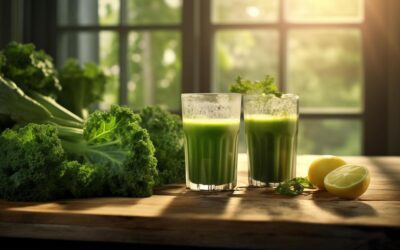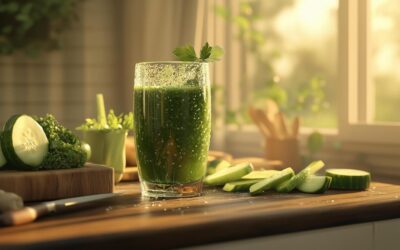TL;DR:
- Anemia Basics: Anemia results from low red blood cells or hemoglobin and causes tiredness, weakness, and breathlessness. Hemoglobin transports oxygen; low levels affect muscles and organs.
- Beetroot Juice Benefits: Rich in iron and vitamin C, it boosts hemoglobin, improves oxygen flow, and revitalizes red blood cells. Works well for mild anemia and complements iron supplements.
- Vitamin C Role: Enhances iron absorption; pairing beetroot with oranges or lemons boosts effectiveness.
- Recipe Idea: Blend beetroot, carrot, orange juice, and mint for a nutrient-packed drink. Best consumed fresh in 1-cup (250ml) portions daily, preferably in the morning.
- Risks: Overconsumption may cause beeturia, kidney stones, or low blood pressure issues. Consult a doctor with concerns.
- Pregnancy Benefits: Supplies iron, vitamin C, and folate to combat pregnancy anemia and support fetal development.
Feeling drained, weak, or just not yourself lately? Anemia might be the culprit. But here’s an intriguing question: can a simple glass of beetroot juice be your ticket to higher energy and healthier blood? Loaded with iron and nutrients, beetroot juice is creating a buzz as a natural remedy for anemia. Let’s dive into the science, benefits, and tasty ways to make it part of your routine. Is it the powerhouse your body needs? Let’s find out.
What Is Anemia and How Does It Affect Hemoglobin Levels?
Anemia happens when your body doesn’t make enough healthy red blood cells or hemoglobin. Hemoglobin is the protein in red blood cells that carries oxygen to every part of your body. Without enough hemoglobin, your muscles and organs can struggle to get the oxygen they need. This can cause tiredness, weakness, and shortness of breath.
People with anemia may feel dizzy, have headaches, or notice they get cold easily. In some cases, rapid heartbeats or a decreased appetite can show up as symptoms, too. If anemia goes untreated, it could make daily life harder because your body lacks the energy it needs.
So, why is hemoglobin so important for your health? The job of hemoglobin is to bind oxygen and transport it through your bloodstream. When hemoglobin is low, oxygen movement slows, and you’ll feel the effects. Making sure you maintain strong hemoglobin levels is key to staying active and alert.
To fight anemia, some people turn to nutrient-rich foods. Beetroot juice, for instance, has been noted for its benefits for hemoglobin levels. Its nutrients, like iron and vitamin C, help your body make and protect red blood cells. This guide offers more ways to increase hemoglobin naturally. Proper nutrition, though, is just one part of managing anemia effectively. Always consult a doctor for personalized advice.
Why Is Beetroot Considered a Natural Remedy for Anemia?
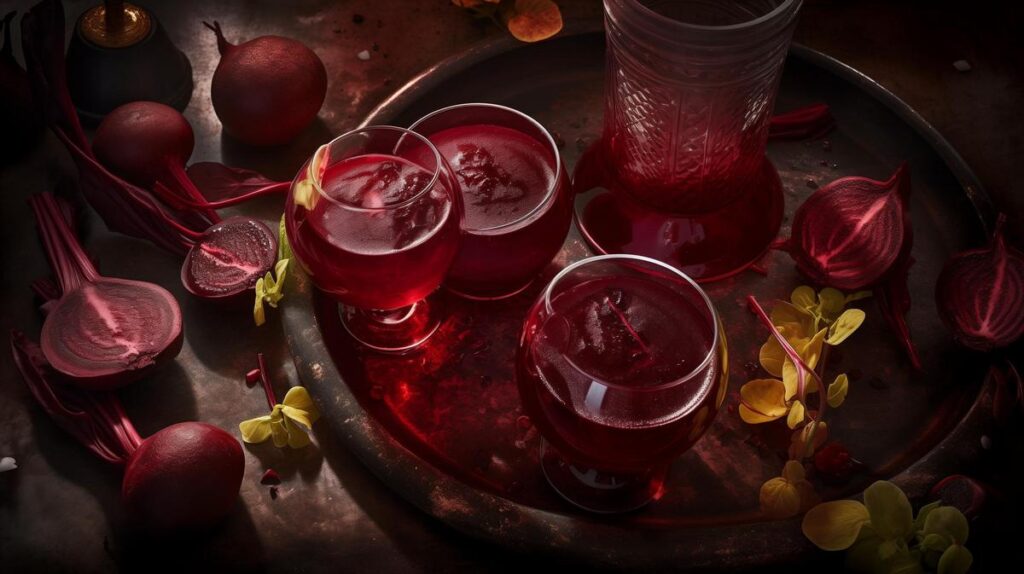 Beetroot is packed with nutrients that target the root of anemia—low red blood cells. It’s a powerhouse of iron, which is crucial for boosting hemoglobin production. Hemoglobin is the protein that carries oxygen throughout your body. Without enough iron, your cells struggle, leaving you tired and weak.
Beetroot is packed with nutrients that target the root of anemia—low red blood cells. It’s a powerhouse of iron, which is crucial for boosting hemoglobin production. Hemoglobin is the protein that carries oxygen throughout your body. Without enough iron, your cells struggle, leaving you tired and weak.
Another big star in beetroot is vitamin C. This vitamin doesn’t just help fight off colds—it makes it easier for your body to absorb iron. Drinking beetroot juice combines iron and vitamin C, which is like giving your bloodstream a much-needed energy drink.
So how does beetroot juice repair red blood cells? It jumpstarts your body’s own system of oxygen delivery. As you drink it, beetroot juice reacts directly with your red blood cells. The iron content helps build hemoglobin, while the natural nitrates improve blood flow. This combo boosts oxygen levels, helping your cells work better.
Experts like Dr. Ashutosh Gautam point out that beetroot juice revitalizes red blood cells. And if you’re asking, is beetroot juice good for chronic anemia? Absolutely. For those fighting long-term anemia, beetroot’s nutrients act as both a repair kit and a steady energy source. To see research on these effects, check out this article on beetroot and health.
How Does Vitamin C Enhance Iron Absorption in Beetroot Juice?
Vitamin C plays a key role in helping your body absorb iron. When you drink beet juice and vitamin C for anemia, they work together to improve iron uptake. Vitamin C transforms iron into a form that’s easier for your body to use. Without it, much of the iron you consume might pass through your body unused.
Adding vitamin C-rich fruits to your beet juice boosts its effectiveness. Think oranges, lemons, or even a bit of grapefruit juice mixed in. These fruits don’t just help enhance beet juice iron absorption—they also make the juice more flavorful. Plus, they bring their own set of nutrients, like antioxidants, into the mix.
Why combine beetroot with vitamin C ingredients? Beetroot is full of non-heme iron, which needs vitamin C to be fully absorbed. Drinking plain beet juice may not give you the maximum benefits to fight anemia. By mixing in oranges or other fresh citrus, you unlock the iron’s potential and strengthen your red blood cell production. If you’re looking for ideas, try blending orange juice with beetroot and carrot for a delicious and nutrient-packed drink. Learn more about the benefits of combining these ingredients here.
What Are the Top Benefits of Beetroot Juice for Hemoglobin Levels?
Beetroot juice has earned a solid place in conversations about anemia, and for good reason. Can beetroot juice help prevent iron deficiency anemia? Yes, it can. It’s rich in iron, which helps the body make hemoglobin—a protein in red blood cells. This production is essential for carrying oxygen to tissues. Beet juice also contains vitamin C, which the body needs to absorb iron properly. When combined, these nutrients give beetroot juice a natural edge in increasing hemoglobin levels.
Does beetroot juice improve energy in anemic individuals? Absolutely. Anemia often causes fatigue, a result of low red blood cell oxygen delivery. Drinking beet juice for fatigue from low iron offers a natural lift. When iron levels rise, energy returns as oxygen supply improves. The body uses more oxygen to fuel muscles and organs, which tackles tiredness.
Beetroot juice to increase hemoglobin naturally also strengthens red blood cells. Beyond iron and vitamin C, beetroot contains potassium and folate. These minerals work together to support healthy blood. Drinking it often could protect against more severe iron deficiencies. Experts also recommend pairing it with carrot or orange juice to boost its flavor and nutrients. For more information about beetroot’s impact, check out this study.
What Is the Best Way to Prepare Beetroot Juice for Anemia Management?
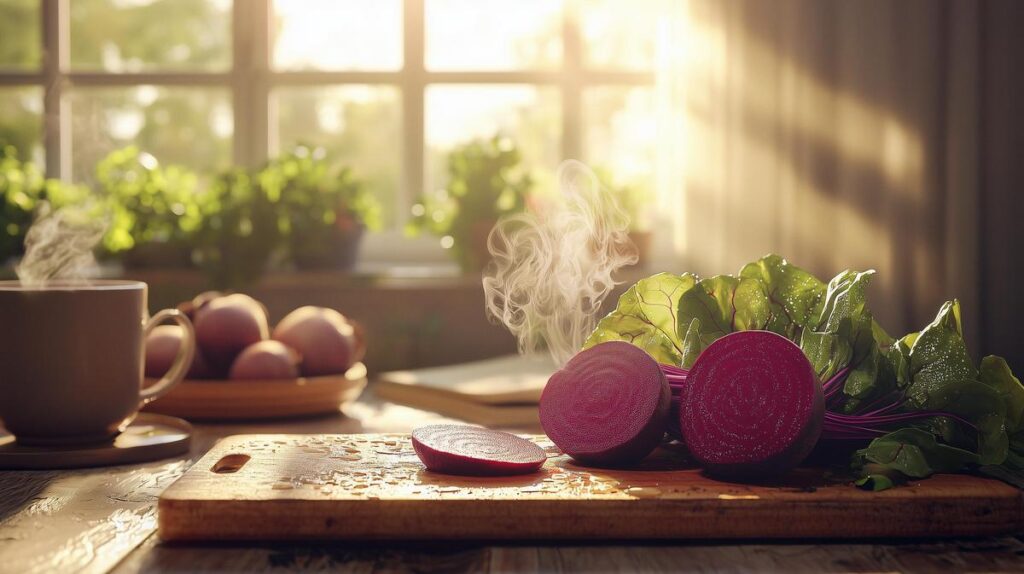
To tackle anemia with beetroot juice, keeping it simple works best. A simple beetroot juice recipe for low iron needs just a few ingredients: beetroot, carrot, orange, and mint. These blend into a nutrient-packed drink that boosts iron levels naturally.
If you’re wondering how to prepare beetroot juice for iron intake, start with fresh ingredients. Here’s how I do it: Peel one beetroot and one large carrot, then chop them into small pieces. Add these to a blender with seven or eight mint leaves. Blend until smooth. Separately, juice one or two oranges, which add great flavor and vitamin C to help absorb the iron. Mix the orange juice with the blended beet-carrot mixture. A pinch of black salt or lemon juice can enhance the taste.
Adding carrots not only sweetens the juice but complements the iron. Oranges are key since vitamin C helps your body use iron from plant sources. Mint adds freshness and supports digestion.
Making beetroot juice at home ensures you’re getting a fresh, iron-rich drink. For more on combining ingredients effectively, check this guide.
Can Beetroot Juice Replace Iron Supplements?
Beetroot juice is not as concentrated in iron as standard iron supplements. Supplements are formulated to deliver higher iron amounts in a small dose. Beetroot juice, though rich in iron and vitamin C, primarily acts as a natural aid rather than a direct replacement. If you have severe anemia, relying solely on beetroot juice may not provide the needed iron levels quickly enough.
What makes beetroot juice shine is its role in mild anemia or as a complementary option. It repairs red blood cells and boosts oxygen in the body. When compared to supplements, it’s a gentler choice with fewer risks of side effects like constipation or nausea, which are common with pills. Iron-rich drinks like beetroot juice can also appeal to those who prefer natural remedies backed by nutrition.
Choosing natural remedies offers advantages. Beetroot juice provides more than just iron—its vitamin C improves iron absorption, and its antioxidants support overall health. Plus, drinking beetroot juice feels less daunting compared to swallowing pills every day, especially for children or those averse to medications. For a deeper dive into this topic, you can find more scientific insights here. Consulting with a doctor is essential to decide what best fits your needs.
 Pregnant women are at a higher risk of anemia because their iron needs increase. As a baby grows, the mother’s body produces more blood to support both her own body and the baby. This often leads to iron deficiency, which is the most common cause of anemia during pregnancy. Symptoms like tiredness, dizziness, and trouble breathing can make pregnancy even harder.
Pregnant women are at a higher risk of anemia because their iron needs increase. As a baby grows, the mother’s body produces more blood to support both her own body and the baby. This often leads to iron deficiency, which is the most common cause of anemia during pregnancy. Symptoms like tiredness, dizziness, and trouble breathing can make pregnancy even harder.
Beetroot juice can be useful for pregnancy-related anemia because it is rich in iron and vitamin C. Iron is essential to help the body produce hemoglobin, which carries oxygen in the blood. Without enough iron, red blood cells can’t function well, and symptoms of anemia worsen. Beetroot’s high vitamin C content enhances iron absorption, making it easier for the body to use the iron provided.
Drinking beetroot juice during pregnancy anemia isn’t just about iron, though. Beetroot has other nutrients like folate, which helps prevent birth defects and supports healthy cell growth. Adding beetroot juice to your diet during pregnancy can also naturally boost energy levels and improve oxygen flow, giving both you and your baby the support you need. For more insights, explore this study on beetroot’s health benefits.
What Are Some Healthy Beetroot Juice Combinations for Better Iron Absorption?
Mixing beetroot with the right ingredients enhances its benefits. Carrots, for example, are a great match for beetroot juice. Carrots add natural sweetness and their vitamin A supports iron storage. When you combine beetroot and carrot juice for iron, the nutrients work together to boost red blood cell health. This combination also makes the drink more enjoyable.
Other good pairings for beetroot include oranges, apples, and spinach. Oranges are rich in vitamin C, which helps the body absorb iron more effectively. Apples bring a light, refreshing flavor while providing more iron and antioxidants. Spinach adds an extra iron punch, making your juice even more powerful for fighting anemia.
Considering these options, try mixing beet juice with carrot for added nutrients. For a quick recipe, blend one beetroot, one carrot, and the juice of one orange. This trio not only increases iron absorption but also energizes and tastes great. Adding foods like oranges ensures you reap beetroot’s full benefits while making the drink versatile. For more insight into beetroot’s nutrition, read this overview.
Are There Any Side Effects or Risks of Drinking Beetroot Juice Daily?
Yes, drinking too much beetroot juice can be harmful. One common issue is beeturia, where your urine turns pink or red. This is harmless but can be alarming if you don’t expect it. However, more serious risks include kidney stones. Beetroot contains oxalates, which can lead to stone formation in people prone to this condition. If you’ve had kidney stones before, it’s wise to limit beetroot juice.
Certain people should also avoid drinking beetroot juice daily. Those with low blood pressure might face problems since beetroot can drop blood pressure further. If your pressure is already on the low side, this drink may not be the best choice for you. People on blood-thinning medication or with allergies to beets should also steer clear.
It’s important to remember that beetroot juice, while healthy, isn’t perfect for everyone. Drinking it habitually or in excess can lead to side effects, especially for anemia sufferers who may rely on it heavily. If you’re in doubt about whether it’s safe for you, talk to your doctor. For more research behind these claims, check out this study.
When and How Much Beetroot Juice Should You Consume for Optimal Benefits?
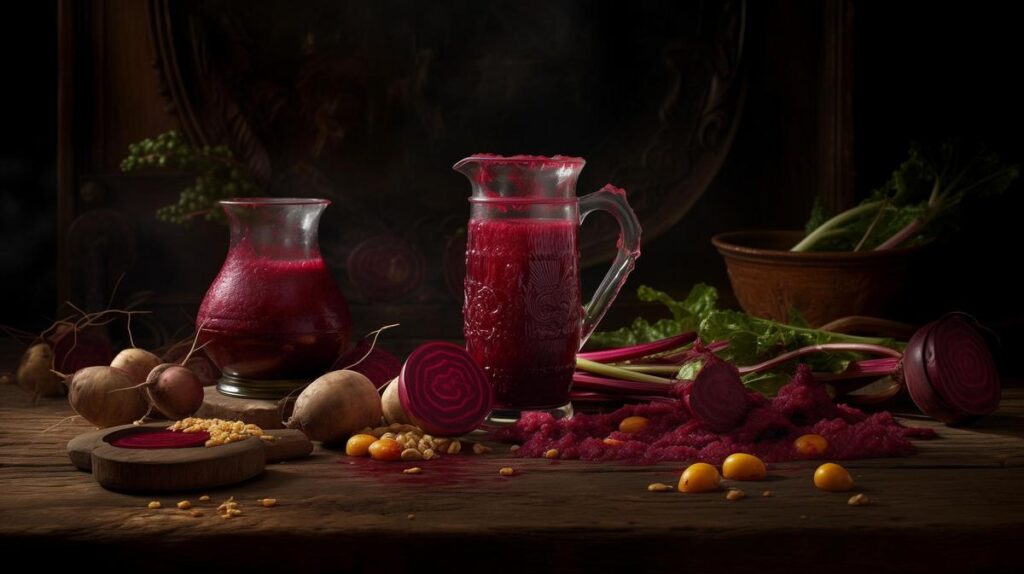 If you’re drinking beetroot juice daily for anemia, aim for about one cup (250ml). This amount usually contains enough iron and vitamin C to help your body fight anemia. Drinking too much can lead to side effects like an upset stomach or changes in urine color, so sticking to this portion is key.
If you’re drinking beetroot juice daily for anemia, aim for about one cup (250ml). This amount usually contains enough iron and vitamin C to help your body fight anemia. Drinking too much can lead to side effects like an upset stomach or changes in urine color, so sticking to this portion is key.
The best time to drink beetroot juice for iron levels is in the morning on an empty stomach. An empty stomach helps your body absorb nutrients more effectively, especially iron. If mornings don’t work for you, drink it about two hours before or after a meal. This avoids competition with other foods that may block iron absorption, like dairy or caffeine.
If you’re wondering how much beet juice for anemia is too much, experts suggest no more than two cups (500ml) daily. Consuming it responsibly gives you the benefits without overloading your system. As for preparation, keep it fresh and simple to retain all the nutrients.
By timing and portioning beetroot juice right, you can naturally improve your iron levels and feel more energetic. Learn more about the research behind beetroot juice for anemia.
Conclusion
Beetroot juice is a natural powerhouse that supports hemoglobin levels and combats anemia. From boosting iron absorption with vitamin C to pairing it with nutrient-rich ingredients like carrots, the benefits are clear. Unlike supplements, beetroot provides a holistic, nutrient-dense option with fewer risks when consumed wisely. Whether you’re pregnant, recovering from low iron, or seeking better energy, beetroot juice offers versatile, effective support. Remember, moderation is key, and incorporating it into a balanced diet is the best way to reap its rewards. Don’t wait—start enjoying the simple, transformative power of beetroot today.


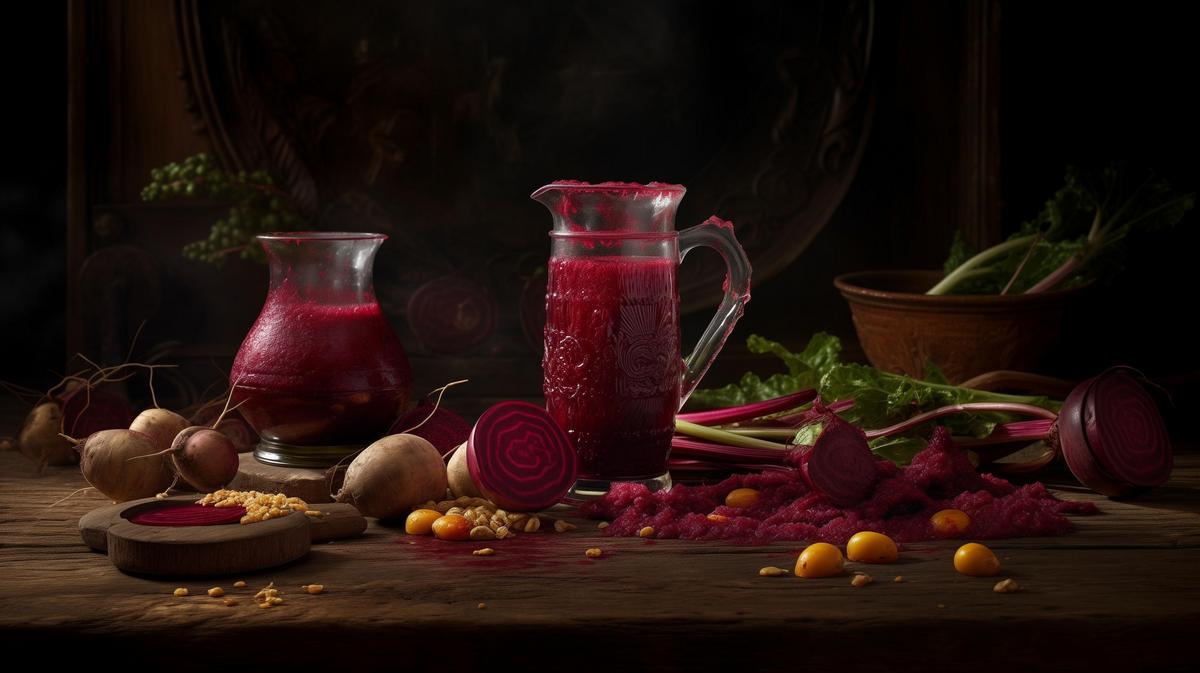
 Beetroot is packed with nutrients that target the root of anemia—low red blood cells. It’s a powerhouse of iron, which is crucial for boosting hemoglobin production. Hemoglobin is the protein that carries oxygen throughout your body. Without enough iron, your cells struggle, leaving you tired and weak.
Beetroot is packed with nutrients that target the root of anemia—low red blood cells. It’s a powerhouse of iron, which is crucial for boosting hemoglobin production. Hemoglobin is the protein that carries oxygen throughout your body. Without enough iron, your cells struggle, leaving you tired and weak.

 If you’re drinking beetroot juice daily for anemia, aim for about one cup (250ml). This amount usually contains enough iron and vitamin C to help your body fight anemia. Drinking too much can lead to side effects like an upset stomach or changes in urine color, so sticking to this portion is key.
If you’re drinking beetroot juice daily for anemia, aim for about one cup (250ml). This amount usually contains enough iron and vitamin C to help your body fight anemia. Drinking too much can lead to side effects like an upset stomach or changes in urine color, so sticking to this portion is key.
